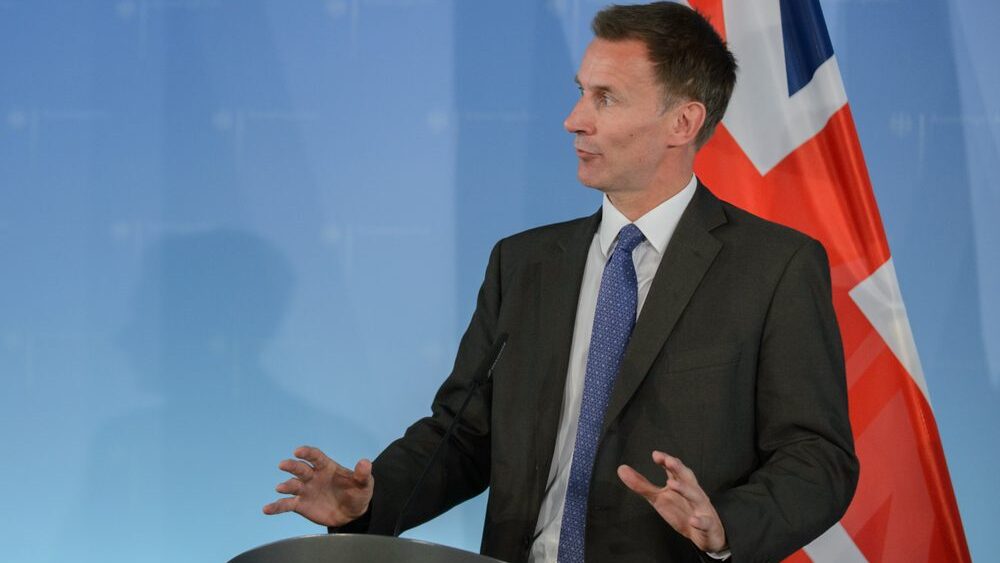
Jeremy Hunt
Photo: photocosmos1 / Shutterstock.com
Delegates at this year’s Tory conference have so far failed to show any interest in its main speakers. But there has, at least, been some life in one debate—on taxes.
While this Tory administration cannot stomach sounding genuinely conservative on a matter like immigration for any more than a couple of days, their battle over GDP continues.
Liz Truss, Britain’s shortest-serving prime minister, who resigned after her ‘mini budget’ sparked political turmoil, attracted a big crowd earlier for her admonition over Rishi Sunak and Chancellor Jeremy Hunt’s economic plan. She said:
We need to unleash business across Britain. We need people to want to invest in our country. We need businesses to be able to expand, to grow, to create new jobs, to create new ideas. That’s why I’m calling upon the chancellor at the autumn [financial] statement to put corporation tax back down [from 25%] to 19%. And frankly, if we can get it lower, the better.
The former prime minister added that businesses being able to keep these funds is where “the future comes from,” and cited Donald Trump, saying that a Conservative Party government should work towards “making Britain grow again.”
This, Truss insisted, also cannot be done while the state is “too big” and “we are spending too much,” while pointing out that “government spending as a proportion of GDP … has not been higher since the 1970s.”
Hunt has resisted calls for drastic changes but in a much milder fashion. Bloomberg described his speech as “devoid of eye-catching policy,” and this, simply, is because the chancellor is trying to avoid drama. Earlier on Monday, he said that while “we would all love to see taxes cut … we don’t know whether that is going to be possible before the next election.”
He has stressed that breaking from this position would result in the nation’s high inflation peaking further at a time when Britons are already struggling through a cost-of-living crisis.
